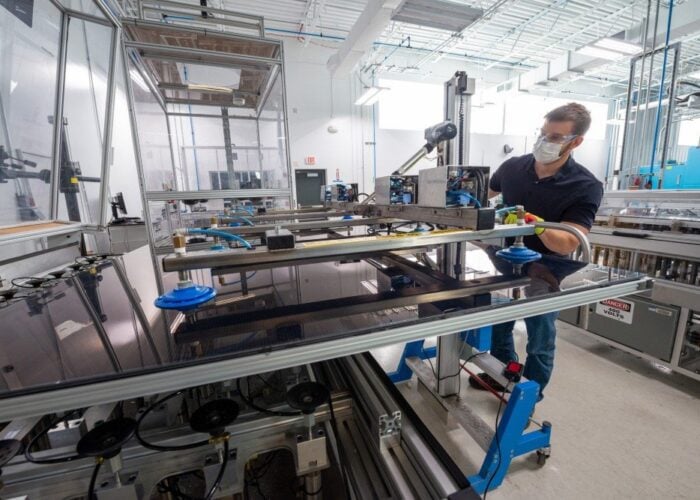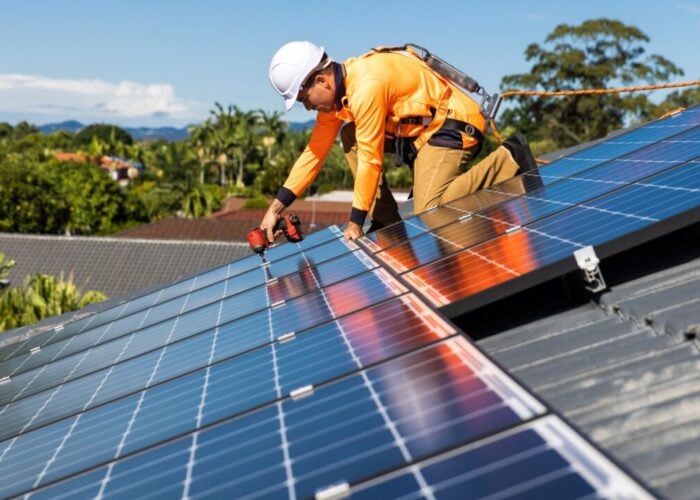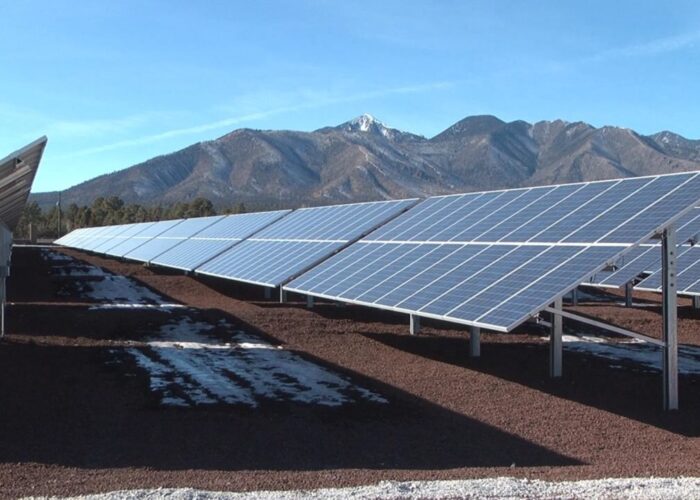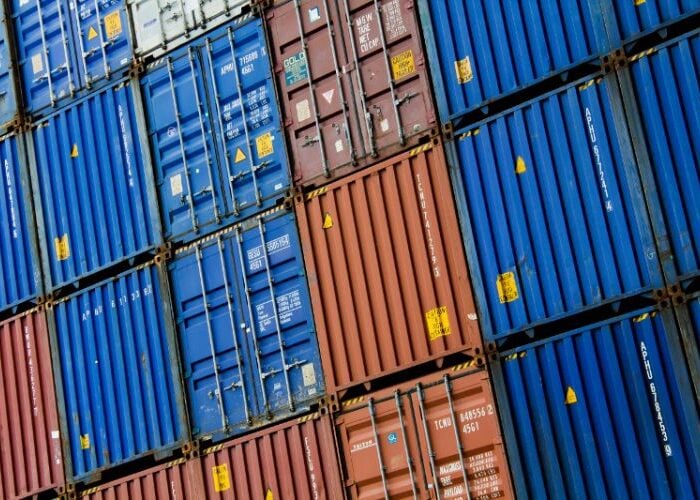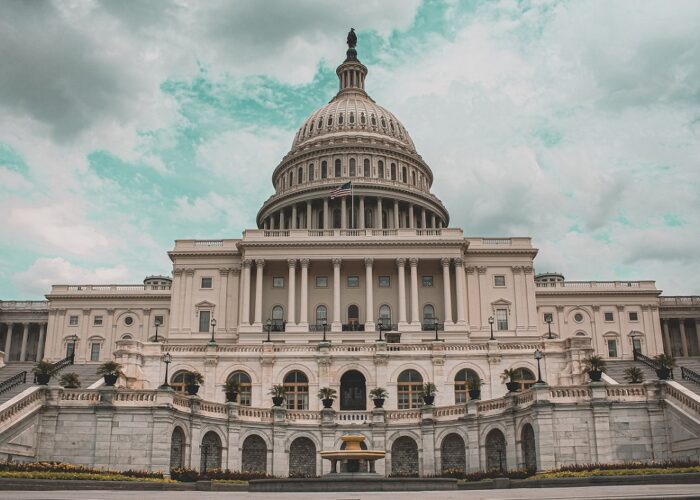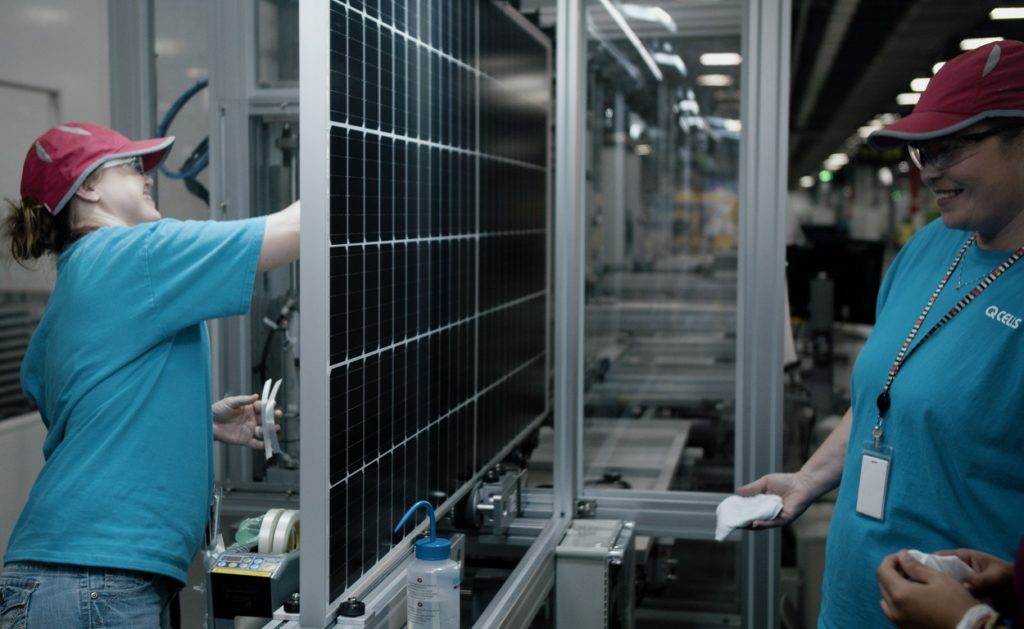
A further three companies have submitted a petition that aims to extend the US’ import tariffs of crystalline silicon solar PV cells and modules.
Hanwha Q CELLS USA, LG Electronics USA and Mission Solar Energy claim that removal of the Section 201 safeguard tariffs would “make it more likely that the US becomes wholly dependent on imports” to combat the climate crisis.
Unlock unlimited access for 12 whole months of distinctive global analysis
Photovoltaics International is now included.
- Regular insight and analysis of the industry’s biggest developments
- In-depth interviews with the industry’s leading figures
- Unlimited digital access to the PV Tech Power journal catalogue
- Unlimited digital access to the Photovoltaics International journal catalogue
- Access to more than 1,000 technical papers
- Discounts on Solar Media’s portfolio of events, in-person and virtual
“Smart trade policy and continuation of the Section 201 safeguard relief are critical to ensuring that our clean energy goals can be met,” the three companies said in a statement sent to PV Tech.
Their announcement follows a petition filed last week from US solar panel manufacturers Auxin Solar and Suniva, which have asked the International Trade Commission to extend the tariffs for four years. Without an extension, the safeguard will end on 6 February 2022.
Q CELLS, LG and Mission Solar said that while “incredible strides” have been made by the US solar manufacturing sector in the last four years, adding more than 5GW of module production capacity, they warned that expansion plans “are imperilled by increasing import volumes, unsustainable market prices and dramatically rising input costs”.
The Section 201 tariffs were introduced by the Trump administration in 2018, with imports on solar cells and modules subjected to an initial 30% tariff that was scheduled to decrease by five percentage points each year. Last October, Trump issued a proclamation that increased the tariff rate from 15% to 18% in its fourth year (2021).
The tariffs have previously come under fire from the Solar Energy Industries Association (SEIA), which suggested that they have caused “devastating harm” to the US solar industry. Responding to the petition filed by Auxin and Suniva, the trade body’s vice president of market strategy and general counsel, John Smirnow, described the tariffs as a “multibillion-dollar drag on industry growth”.
He said: “The way to create more US manufacturing is long-term federal investments, not short-sighted tariffs. Indeed, SEIA is advocating for a suite of federal policy options designed to provide demand certainty, leverage private sector capital investments and provide ongoing production support as gaps are filled in the domestic solar supply chain.”
Following a bill introduced earlier this year that would establish a tax credit for US-based solar manufacturers, SEIA has called for a ten-fold increase in US solar manufacturing capacity to reach 50GW of annual production by 2030.


